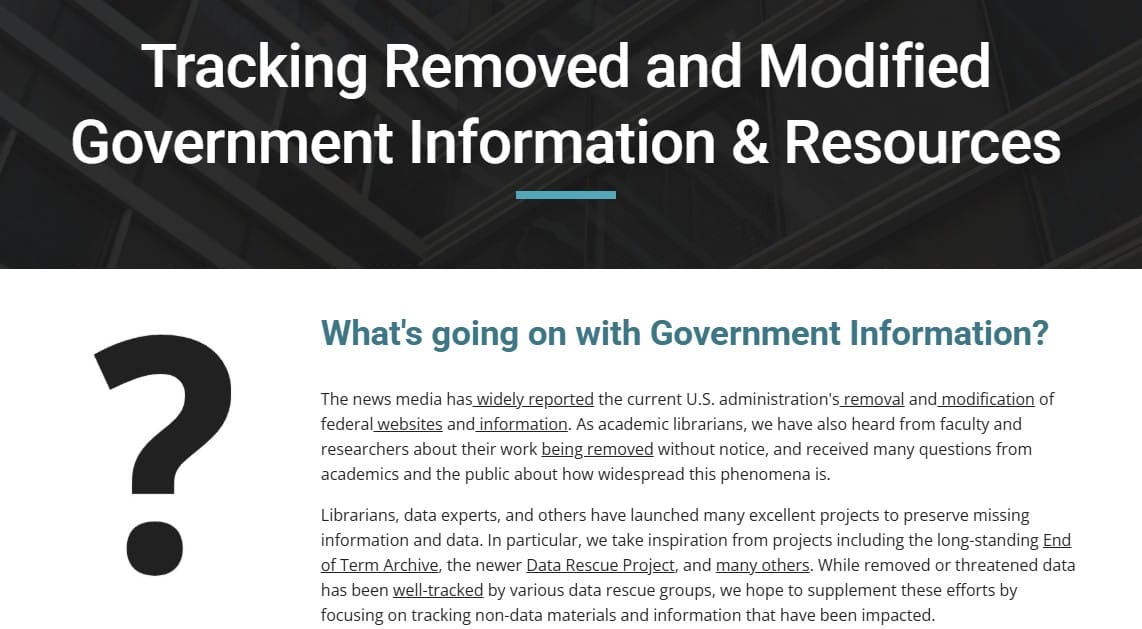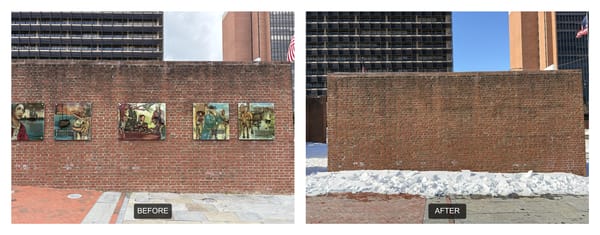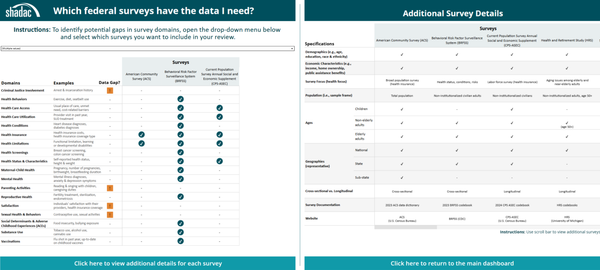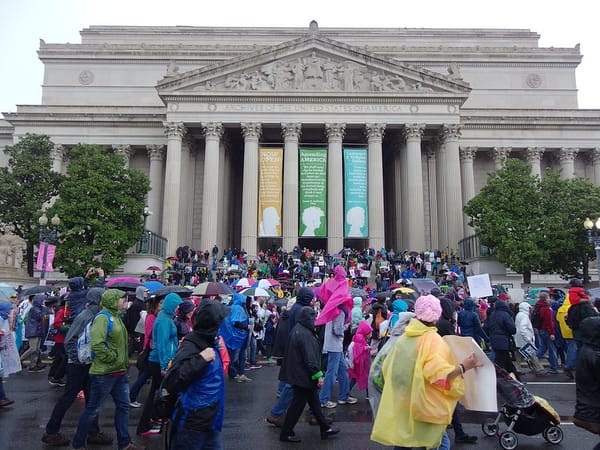Tracking Government Information

As always, the Data Rescue Project loves highlighting partners and initiatives. Today, we celebrate the Tracking Gov Info Project!
The Tracking Gov Info Project is a crowdsourcing effort to track removed and modified government information and resources. Although the news media have widely reported the current U.S. administration's removal and modification of federal websites and information, it can be challenging to understand and analyze the scope of the problem without a central list tracking what has disappeared.
The goal of the Tracking Gov Info Project is to compile a comprehensive list of government websites, documents, articles, reports, etc. that have been removed or modified by the current administration. Anyone who encounters a missing resource can enter it using our submission form. Entries can be viewed publicly on the spreadsheet.
The project is currently led by government information and social science librarians from the University of Minnesota, Twin Cities, and the University of Illinois, Urbana-Champaign. As librarians, we are increasingly fielding questions such as “How many documents have been taken down?” and “Can I get an archived copy of this website somehow?” We hope that this tracking project can help researchers and the general public see the extent of the information and resources that have been removed and locate archived copies of those resources whenever possible. Looking forward, we also hope this spreadsheet will enable users to analyze what content has been removed. For example, what patterns emerge based on department, topic, format, or other factors?
This project takes inspiration from other efforts, such as the End of Term Archive and the Data Rescue Project, and draws on the Internet Archive’s Wayback Machine for finding archived copies and establishing timelines for when content was removed. Our focus is on tracking non-data government information to complement the fantastic efforts of the Data Rescue Project.
We encourage anyone with the time and ability to get involved! You can add missing documents and websites to the tracker, preserve websites for the future using the Wayback Machine browser extensions, and contact your representatives to tell them why public information and data need to stay public. We also encourage you to spread the word by sharing the project with colleagues and highlighting it to library users. Our government is “by the people, for the people,” and we deserve to retain access to our publicly funded information, data, and history.




